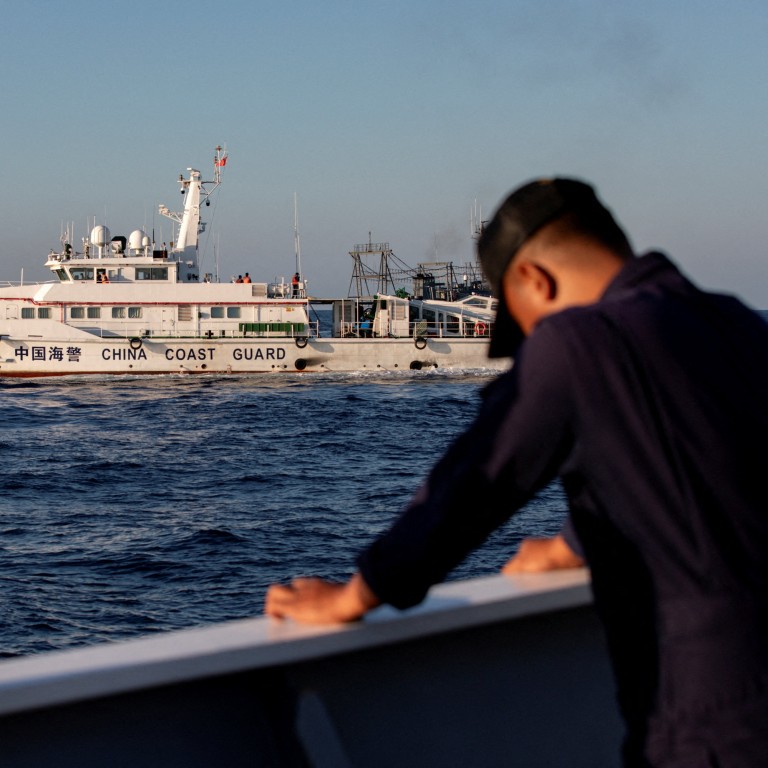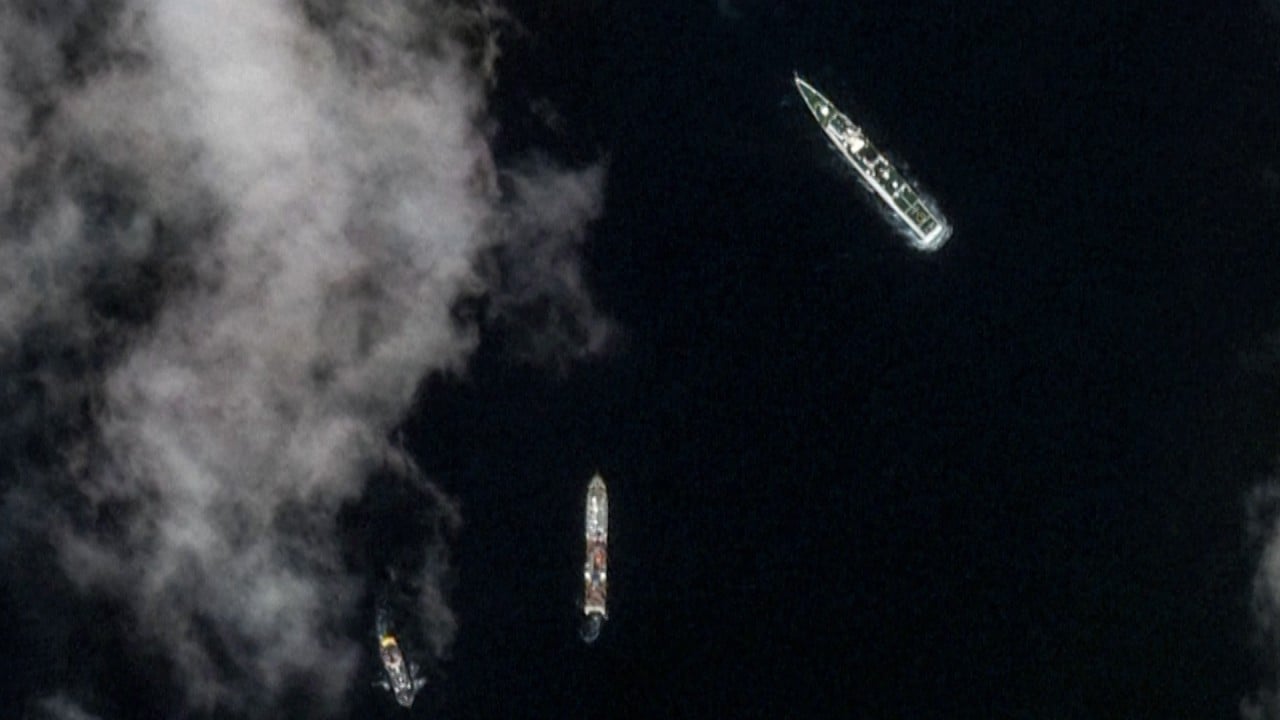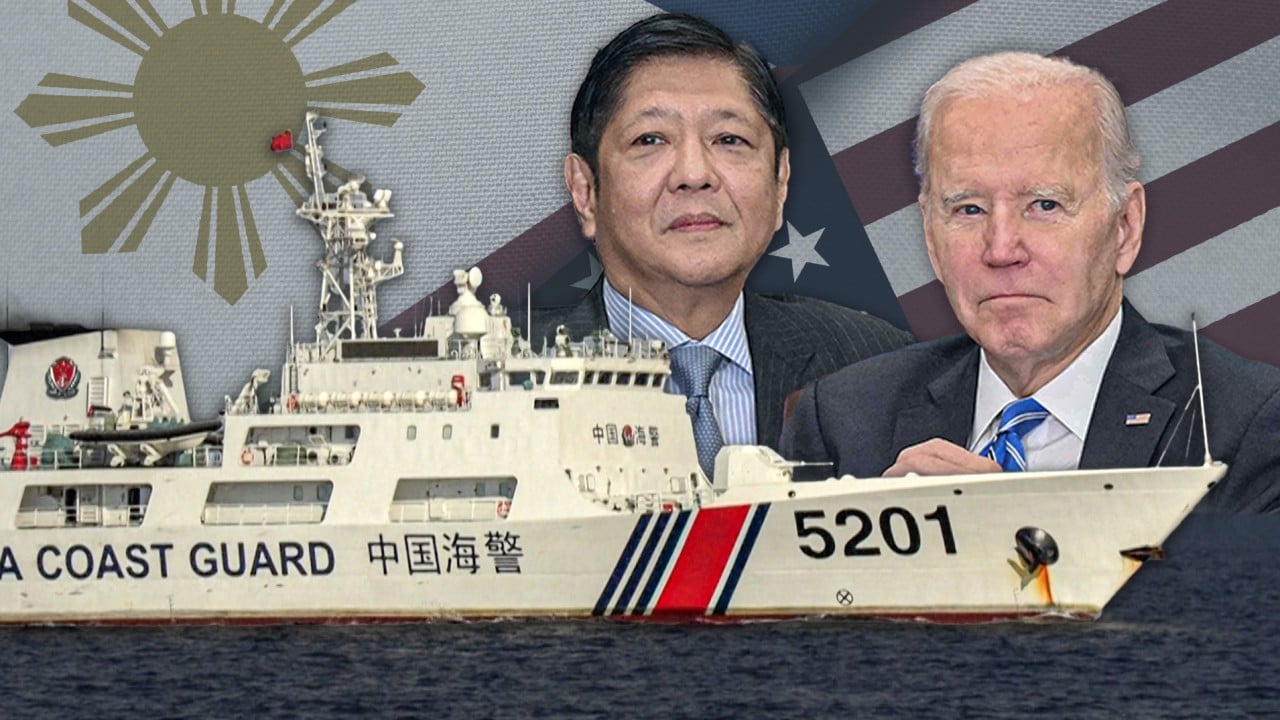
South China Sea: Beijing could do more to ease tension and build trust with neighbours, experts say
- Boao Forum for Asia told China could do more ‘for the public good’ in effort to build trust with Asean neighbours
- Marine environmental protection, scientific research and search-and-rescue among areas seen as ripe for China-Asean cooperation
They also said it was imperative that China and members of the Association of Southeast Asian Nations (Asean) build trust as they strive to resolve disputes – that they “will be living with for a long time” – in the busy waterway.
Meanwhile, Stephen Orlins, president of the National Committee on United States-China Relations who also attended last week’s forum, said he saw two futures in the disputed waterway: one unstable and dangerous and the other more prosperous.
In the first scenario, countries in the region continue to unilaterally advance their economic and security interests, he said.
“In the second future, countries in the region do the hard work of diplomacy to develop mechanisms to peacefully address disagreements, and jointly benefit from the South China Sea,” he said.
“I’m committed to working towards the second future – not because it’s in the interests of one country, but because it benefits all,” Orlins said.
China and the Philippines have recently been entangled in disputes in the South China Sea, including repeated run-ins between their maritime law-enforcement units. They have both accused each other of being provocative and warned that an accident will fuel tension, or even trigger military conflict.
The annual Boao Forum has been billed as China’s equivalent to the World Economic Forum at Davos.
Speaking at a sub-forum, Wu Shicun, founding president of China’s National Institute for South China Sea Studies in Hainan, said cooperation was the only way out of the dilemma since there was unlikely to be a quick fix to the problem.
“The South China Sea issue involves territorial disputes and jurisdictional disputes that cannot be addressed in a short period of time. The only path is to cooperate, and marine scientific research remains an area that is relatively easy to start the collaboration,” Wu said.
Writing of South China Sea rule book delayed by lack of trust: maritime expert
He suggested China could “offer more for the public good” related to marine environmental protection to “build trust in the South China Sea”, and provide conservation services to neighbouring countries.
“[China] could build a marine scientific research laboratory on one of the islands or reefs, and invite scientists from the coastal countries to engage in protecting from the environmental degradation and resource depletion problems that we are all facing together,” he said.
However, Wu warned that multinational joint patrols would further endanger stability in the South China Sea.
“More countries are now offering to conduct joint patrols with the Philippines in the South China Sea … their calculations lie in expanding their military presence in the region and reaping geopolitical benefits,” Wu said, adding that Manila had not yet announced whether it would accept such offers.
Therefore, in the long run, the risk of accidental incidents or collisions in the air or at sea between China and other countries was likely to surge, he said.
Yang Renhuo, deputy director general of the Department of Boundary and Ocean Affairs under China’s foreign ministry, called for bold thinking to enhance cooperation.
Negotiations involving territory and maritime rights were “time-consuming and require patience”, but it was possible to discuss joint use and development, he said during a separate panel discussion at the forum.
China and Asean countries should discuss more cooperation in the South China Sea, Yang suggested, with a focus on projects in “less sensitive areas” such as environmental protection, scientific research, maritime search and rescue, combating transnational crimes at sea and the safety of maritime navigation.
“To mitigate contradictions and differences and strive for more tangible benefits, China advocates the adoption of an inclusive and pragmatic approach on the premise of retaining one’s position, or not challenging the position of the other party,” Yang said.
Wang Sheng, president of China’s National Institute for South China Sea Studies, echoed Yang’s remarks and said fishing and disaster mitigation and prevention were also potential arenas for cooperation.
He also suggested establishing multinational joint scientific exploration in the strategic waters and joint law enforcement around less sensitive issues.
“This functional cooperation could help alleviate the tense atmosphere caused by sovereignty disputes, and create better conditions for promoting the integrated development of the South China Sea,” Wang said.
Meanwhile, Jane Chan, maritime security issues expert with the S. Rajaratnam School of International Studies at Nanyang Technological University (NTU), said regional leaders had not paid enough attention to the safety and security of critical infrastructure in the South China Sea.
“While most of the incidences of damages are accidents, recent development further away from the region suggests that these infrastructures are vulnerable to deliberate and malicious targeting and sabotage,” she said at the sub-forum, apparently referring to the recent Red Sea crisis in which Houthis attacked and seized vessels.
Elsewhere, damage – suspected to be deliberate – was caused to an undersea gas pipeline between Finland and Estonia last year.
China warns close military ties between US, Philippines could trigger conflict
The South China Sea is a popular and effective location to host undersea cable routes, connecting large parts of Asia, as well as onwards to Africa. Submarine cables carry most international internet traffic.
According to the United Nations, about one-third of global shipping transits through the South China Sea, underscoring its importance to international trade.



